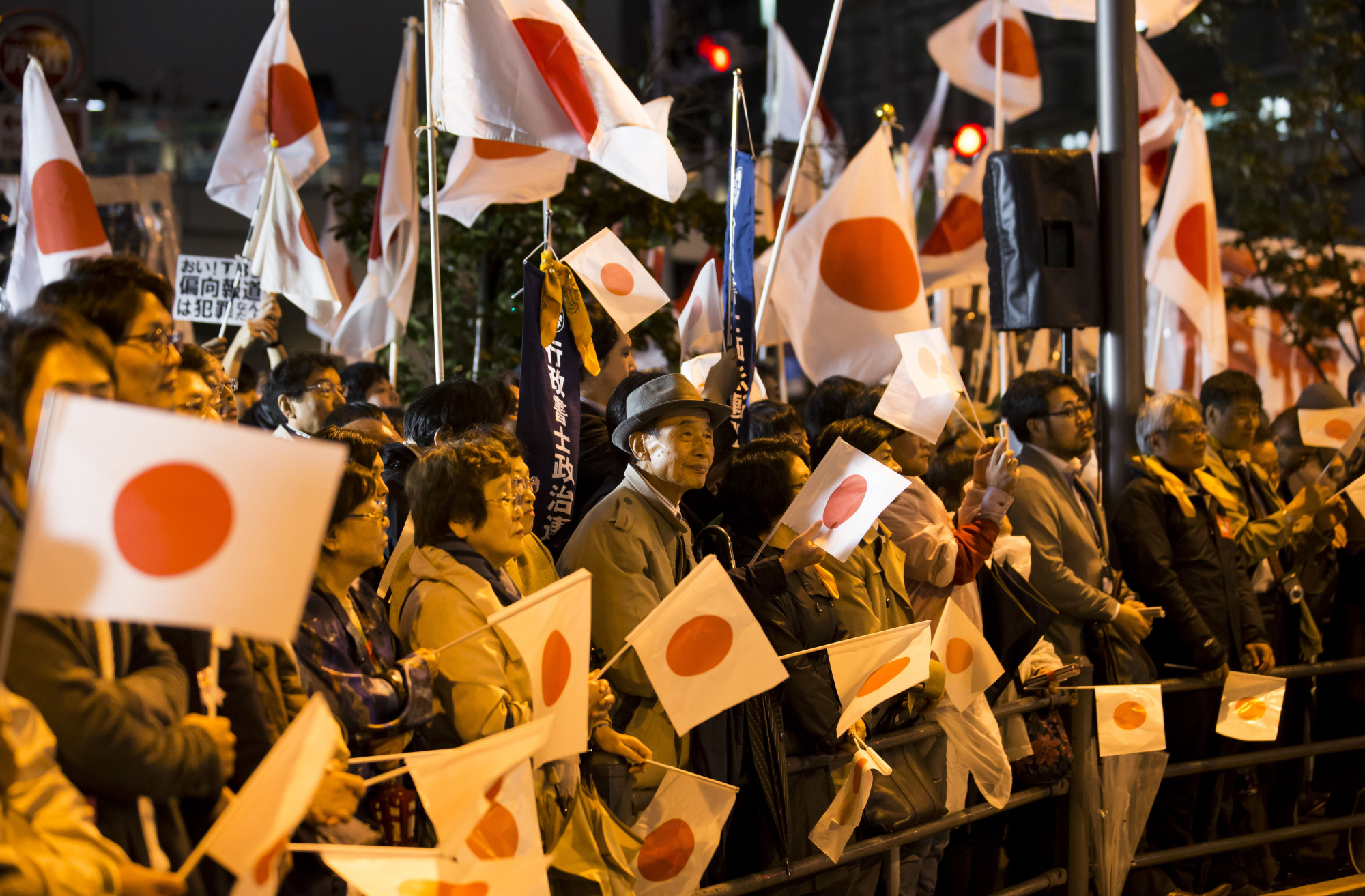Even as a wave of right-wing populism is sweeping Europe, the United States, India and parts of Southeast Asia, Japan has so far appeared to be immune. There are no Japanese demagogues, like Geert Wilders, Marine Le Pen, Donald Trump, Narendra Modi or Rodrigo Duterte, who have exploited pent-up resentments against cultural or political elites. Why?
Perhaps the closest Japan has come was the former mayor of Osaka, Toru Hashimoto, who first made his name as a television personality and then disgraced himself in recent years by commending the use of wartime "comfort women" sent to frontline brothels for Japanese troops. His ultranationalist views and loathing of liberal media were a familiar version of right-wing populism. But he never managed to break into national politics.
Hashimoto now gives Prime Minister Shinzo Abe free advice on tightening national security laws. And therein lies one explanation for the apparent lack of right-wing populism in Japan. No one could be more identified with the political elite than Abe, the grandson of a wartime Cabinet minister and later prime minister, and son of a foreign minister. And yet, he shares right-wing populists' hostility to liberal academics, journalists and intellectuals.


















With your current subscription plan you can comment on stories. However, before writing your first comment, please create a display name in the Profile section of your subscriber account page.